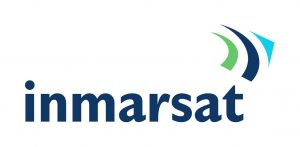Inmarsat appoints two senior leaders to advance unmanned aerial vehicles (UAV) connectivity offering
New executives will focus on creating product roadmap and reinforcing Inmarsat’s position as leading connectivity provider for fast-growing commercial drone market
Inmarsat, the world leader in global mobile satellite communications, has expanded its fast-growing division dedicated to connectivity for Unmanned Aerial Vehicles (UAVs), commonly known as drones, with the addition of two new senior executives. The appointment of Jon Holmes as Senior Director of UAV Technology and Mark ter Hove as Senior Manager of European Market Development will drive forward Inmarsat’s plan to be the leading connectivity partner in this burgeoning sector.
The number of UAVs flying in airspace is expected to increase tenfold from 1.1 million to 10 million by 2027[1], with a far-reaching impact in various aspects of business and society, from emergency services, disaster relief and surveillance, to cargo delivery, inspection and urban transport.
Jon Holmes will be responsible for creating Inmarsat’s roadmap for UAV products and services, working with customers, partners and internal stakeholders. Jon has more than 30 years of experience in aeronautical satellite communications, most recently serving as Senior Director of Engineering and Programme Management at Cobham Aerospace Communications, where he led a 150-strong team to develop aeronautical satellite communication terminal products. Prior to this, Jon spent 16 years in a variety of engineering roles at Honeywell Aerospace, where he led the development of terminal products designed to operate with Inmarsat’s Global Xpress satellite network.
Mark ter Hove will be responsible for evaluating customer and market opportunities in Europe to reinforce Inmarsat as the leading provider of connectivity products and services in the fast-growing field of UAV BVLOS (Beyond Visual Line of Sight) operations. He has over 25 years of aviation experience, including 12 years leading operations at British Airways franchise partners GB Airways and Astraeus Airlines, before serving as airline network manager at London’s Gatwick Airport. In his most recent role as Director of Global Air Transport at Cobham Aerospace Communications, Mark developed a global go-to-market strategy for the company’s portfolio of satcom solutions, helping airlines, air navigation service providers and airports become more integrated through communications technology.
John Broughton, Inmarsat’s Senior Vice President of Aircraft Operations and Safety, said: “We entered the commercial UAV market in 2020, leveraging our capabilities in both aviation safety and network operations. Since then, the team has grown from strength to strength – even winning a coveted award in the ATM Magazine Awards 2020 for our pop-up unmanned traffic management solution with Altitude Angel. Jon and Mark share a wealth of experience in aviation connectivity and are perfectly positioned to take our growing UAV business to the next level. With Jon’s technical expertise and Mark’s strategic prowess, we’re in a strong position to unlock the true potential of the commercial UAV market.”
Inmarsat’s global satellite networks have been successfully providing Communications, Navigation and Surveillance (CNS) services to the global aviation industry for decades. By extending safe control of the skies to include unmanned aircraft, Inmarsat’s satellite connectivity is a catalyst for the safe and rapid growth of the commercial UAV market. Inmarsat is working to combine infrastructure and technology with expertise to support the regulatory advancements needed to integrate UAVs into commercial airspace. These advancements will make BVLOS services a reality, allowing one pilot to operate multiple UAVs remotely at scale and UAVs to operate in mixed-use airspace.

